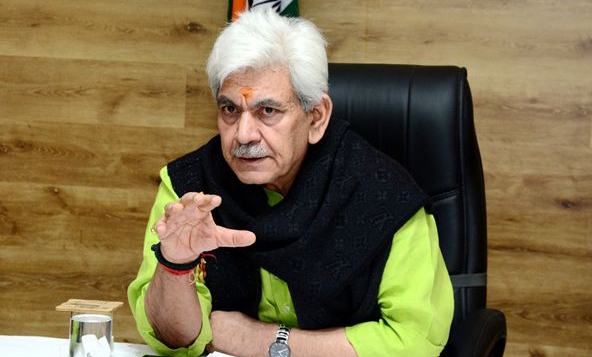Nishikant Khajuria
JAMMU, June 1: On the direction of Lt Governor Manoj Sinha, the School Education Department today issued new guidelines for virtual classes for the students across J&K Union Territory.
According to the new guidelines, the virtual classes for Pre-Primary shall not exceed the time limit of 30 minutes a day while for the students upto 8th standard, the online synchronous learning may be undertaken for not more than two sessions of 30-45 minutes each on working days.
Similarly, online synchronous learning for the students of 9th to 12th standard may be undertaken for not more than four sessions of 30-45 minutes on each of the days.
While joyful learning experience has been stressed for Pre-school and Grade 1 & 2 children, the new guidelines suggest encouraging peer discussion and interaction during online classes for senior students besides 10-15 minutes break between two consecutive classes.
The detailed guidelines were issued on the instruction of Lt Governor Manoj Sinha, who took cognizance of a six-year old girl’s complaint, through a video clip on Monday, to Prime Minister Narendra Modi about online classes and directed the School Education Department to come up with a policy within 48 hours to lighten the burden of homework on small kids.
Within 24 hours, the guidelines for teaching virtual classes across J&K UT were prepared in consultation with all the stakeholders and issued by the Principal Secretary, School Education Department, B K Singh.
The guidelines have been formally communicated to Director School Education Jammu/Kashmir to circulate the same to all CEOs/ZEOs and Head of Institutions, Government as well as private schools, and submit report to Administrative Department on weekly basis.
As per specific guidelines related to Pre-school and Grade 1 & 2, interesting assignments should be given to the children, such as listening and reading stories followed by activities like drawing inferences, adding/changing the climax at the end, picture reading, art and craft, puzzles, simple observations projects, learning new words etc.
Ruling that the parents should be encouraged to document the child’s work through a photo or a short video or order to stay connected to the kid’s early learning experience without making it stressful or going for rote learning, the Government guidelines also suggest occasionally orgainizing brief and casual meetings with the parents and children through video conferencing and give them a chance to narrate their feelings and experience.
The guidelines related to senior students say that 10-15 minutes break should be given between two consecutive classes to freshen up, relax and re-energize the learners to focus on next class.
Besides, the guidelines also recommend use of Instant Messaging/Chat groups/emails involving parents (wherever required) for sharing important information, resources, suggestions and follow up activities.
Post a weekly announcement to provide an overview of the coming week’s topic or a recap of the previous week’s work, or both, says the guidelines, adding that the teachers may share e-content with students and parents and guide them how to use those contents using available gadgets at home.
Where parents are not in a position to support students in digital learning, the guidelines recommend suggesting alternative support like peer learning and seeking help from neighbours, identified local volunteers etc.


